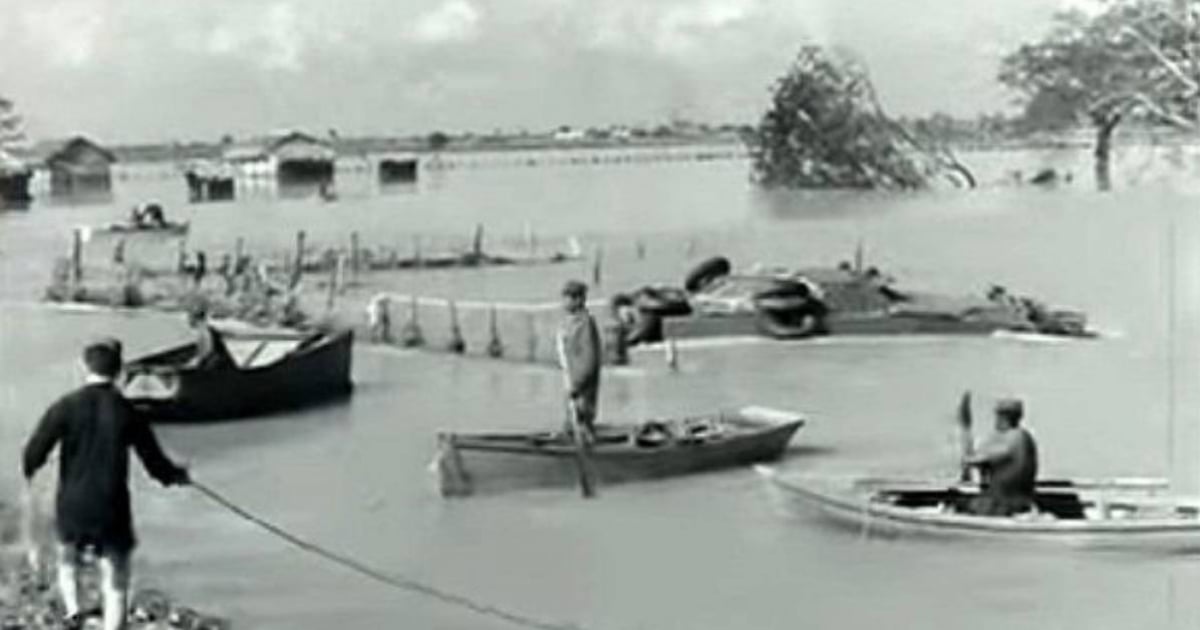
On October 4, 1963, Cuba was hit by Hurricane Flora, one of the most devastating natural disasters in the island's history.
For four days, the cyclone swept through the eastern provinces, leaving over two thousand dead, 100,000 people homeless, and unprecedented devastation in its wake. The impact was such that it is considered one of the greatest failures of the revolutionary government in its early years, as the response to the emergency was insufficient to protect the population and mitigate the disaster.
Today, 61 years later, Cuba faces the same darkness and despair left by Flora. The passage of Hurricane Oscar on October 20, 2024, has caused flooding in provinces like Guantánamo, where areas are reported to be completely submerged and a preliminary toll of seven dead.
Aerial images show devastated communities and the isolation of several municipalities. This is compounded by a massive blackout that has kept the country paralyzed since last Friday.
In 1963, the lack of preparation and response from the government resulted in thousands of lost lives, and now, in the midst of an economic crisis and a massive blackout, many Cubans feel that the situation of precariousness and helplessness is repeating itself. This energy crisis, combined with the ineffective response to the hurricane, has sparked outrage among the population.
Cubans, overwhelmed by scarcity and discontent, are demanding a change of government, arguing that they no longer recognize the country they inhabited.
History repeats itself in a cycle that seems endless. In 1963, Fidel Castro personally led the rescue and aid efforts for the victims, but the devastation was such that the image of the government was severely affected.
Today, leadership is facing a context of hopelessness. Although the authorities have begun to assess the damage and send aid, the response capacity is limited by a weakened economy and deteriorated infrastructure.
What do you think?
COMMENTFiled under: